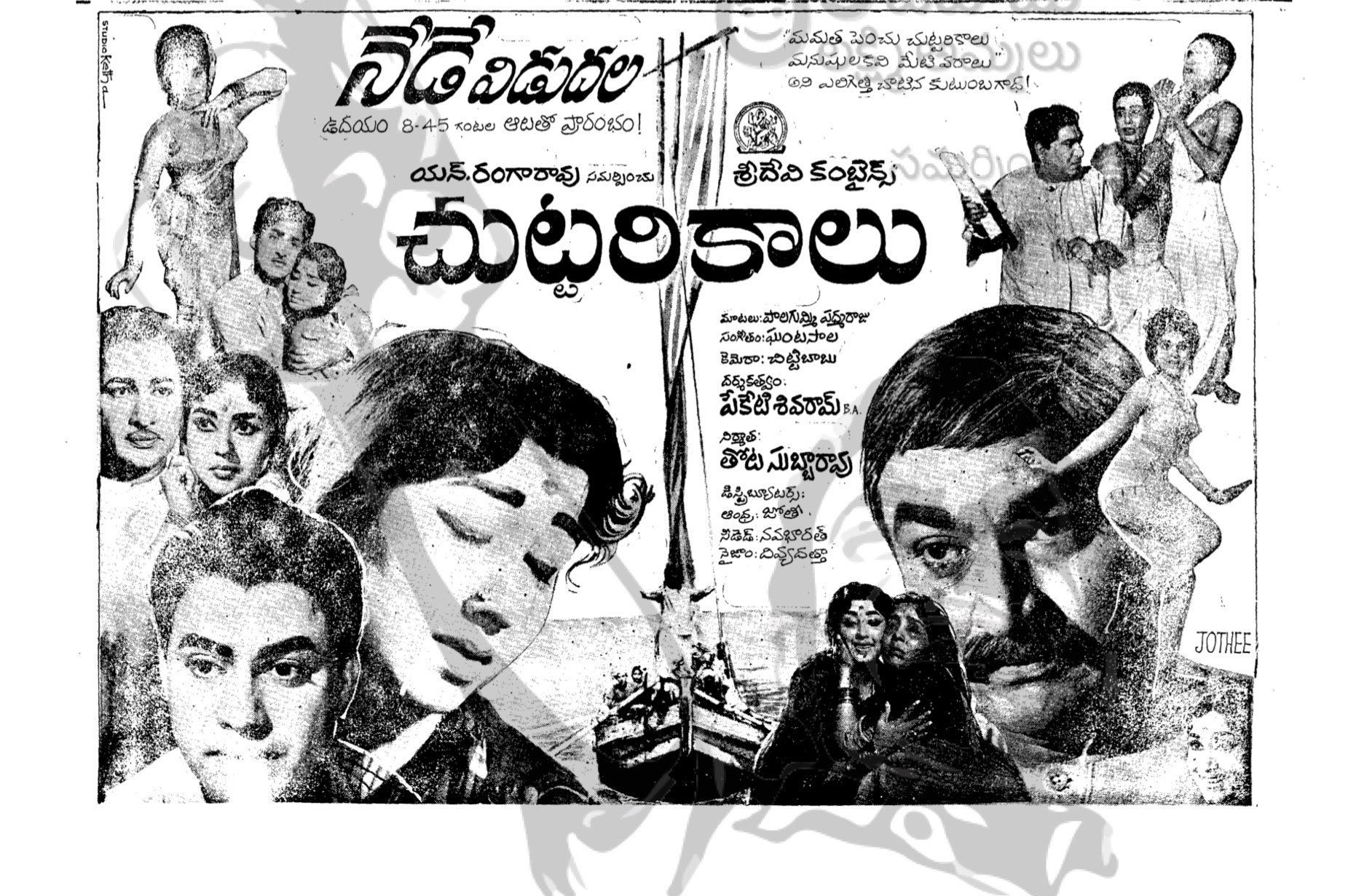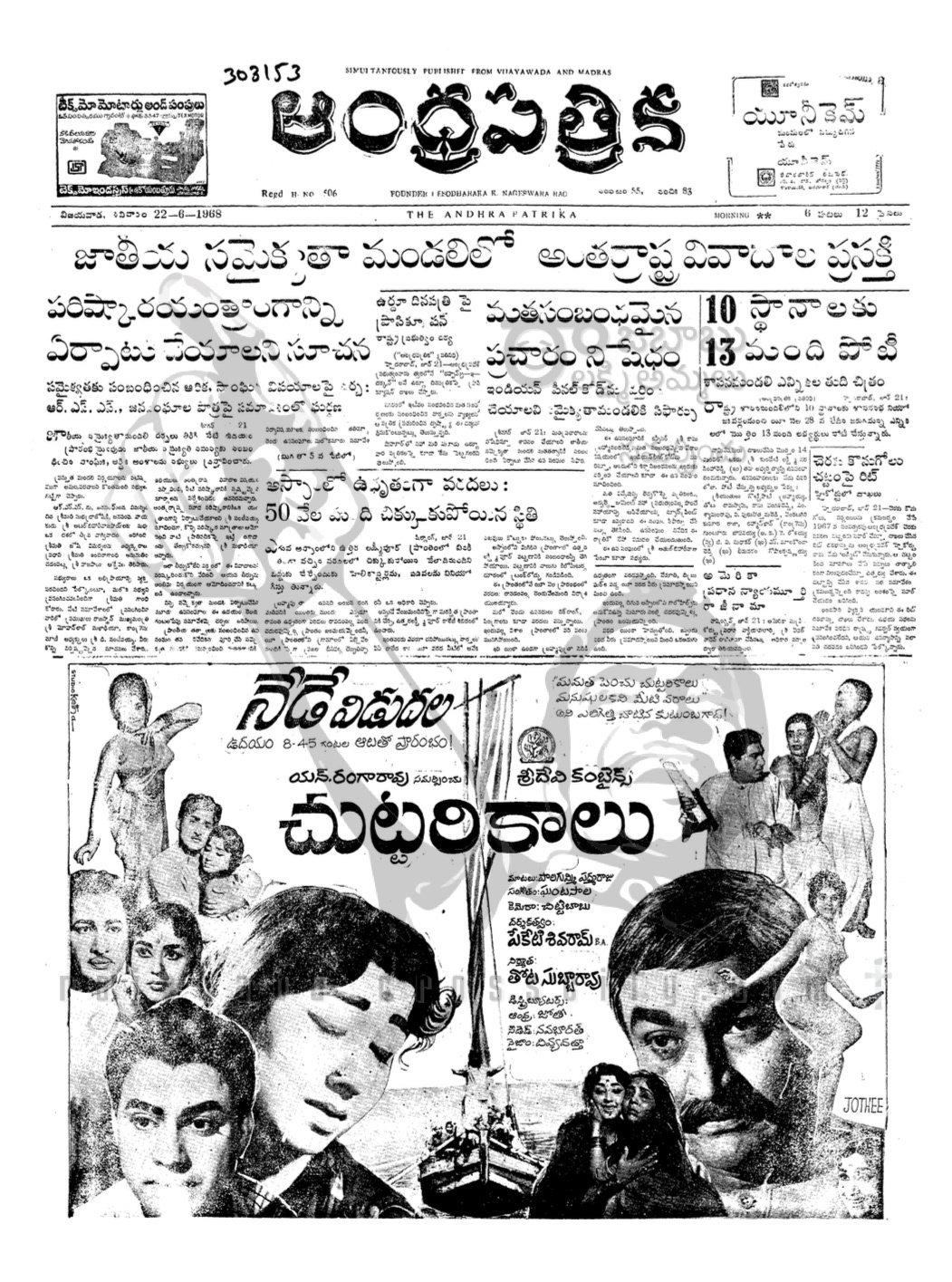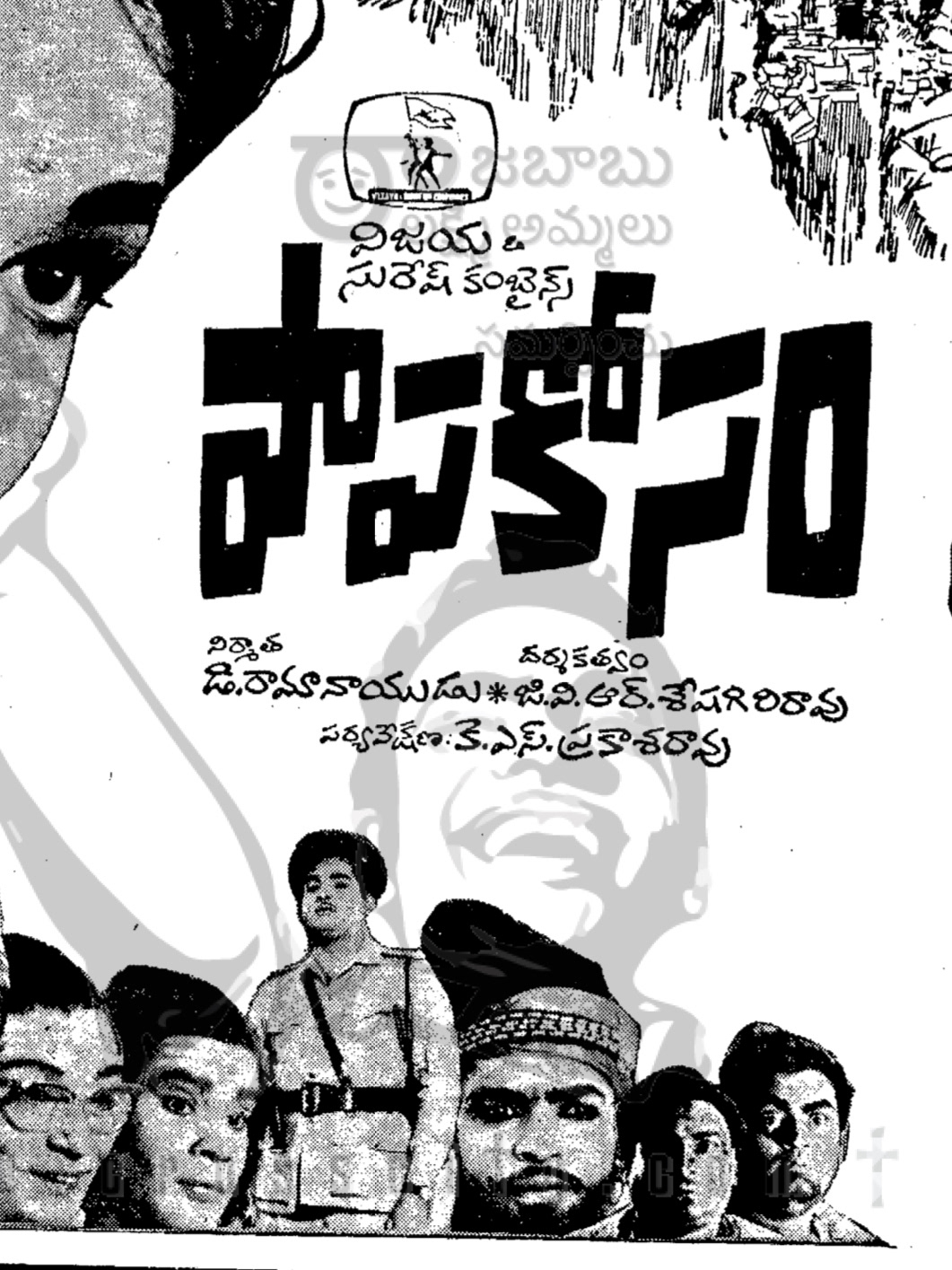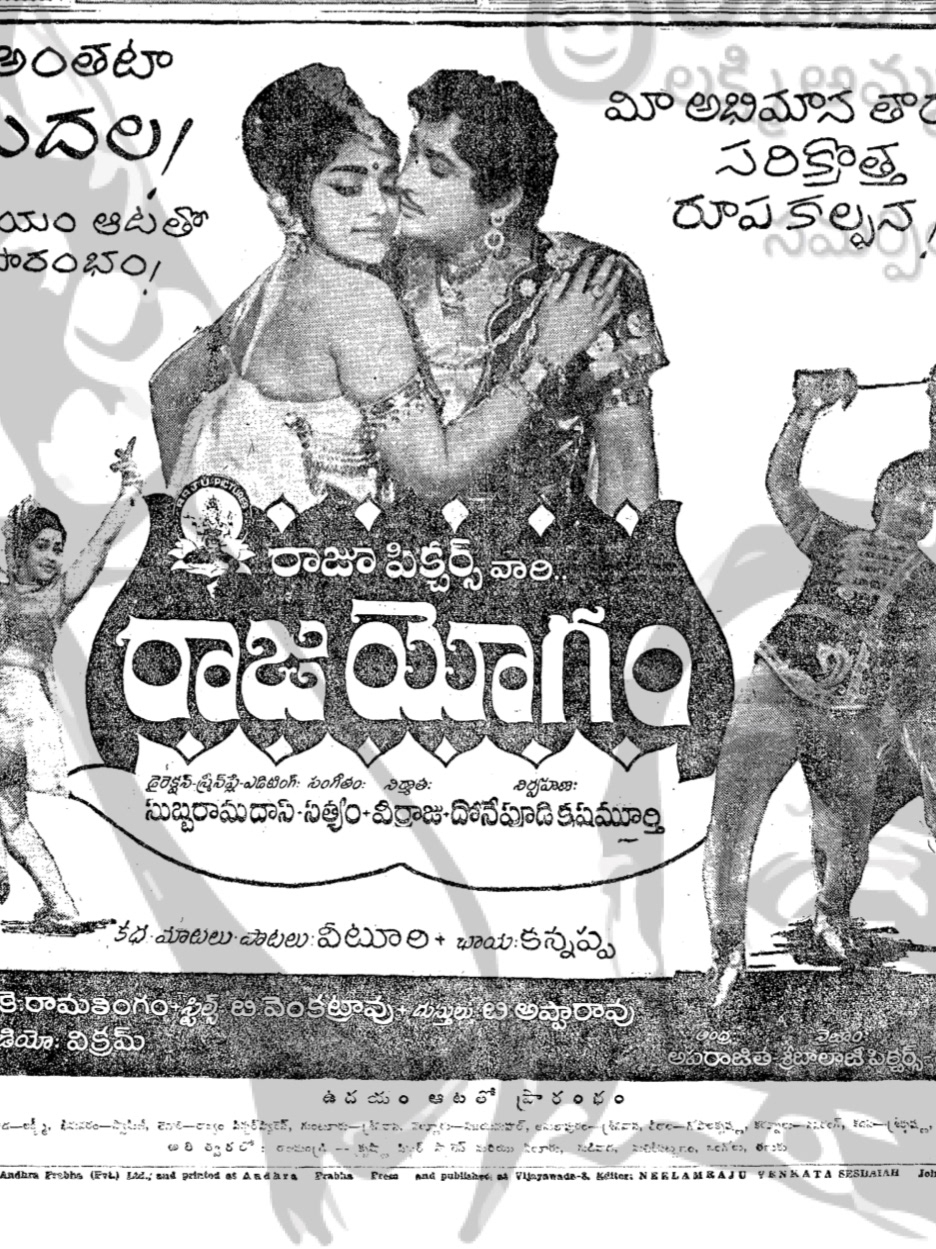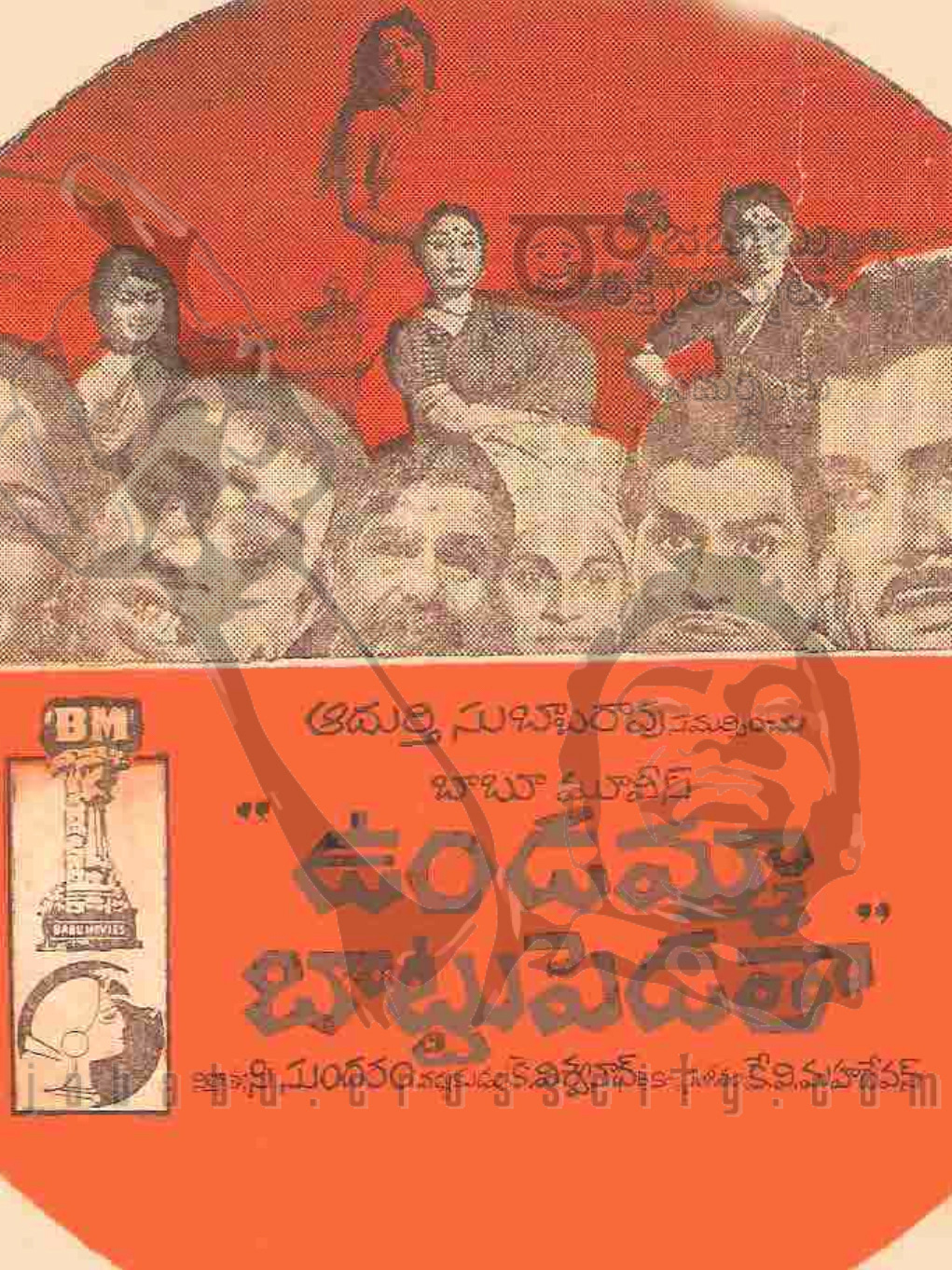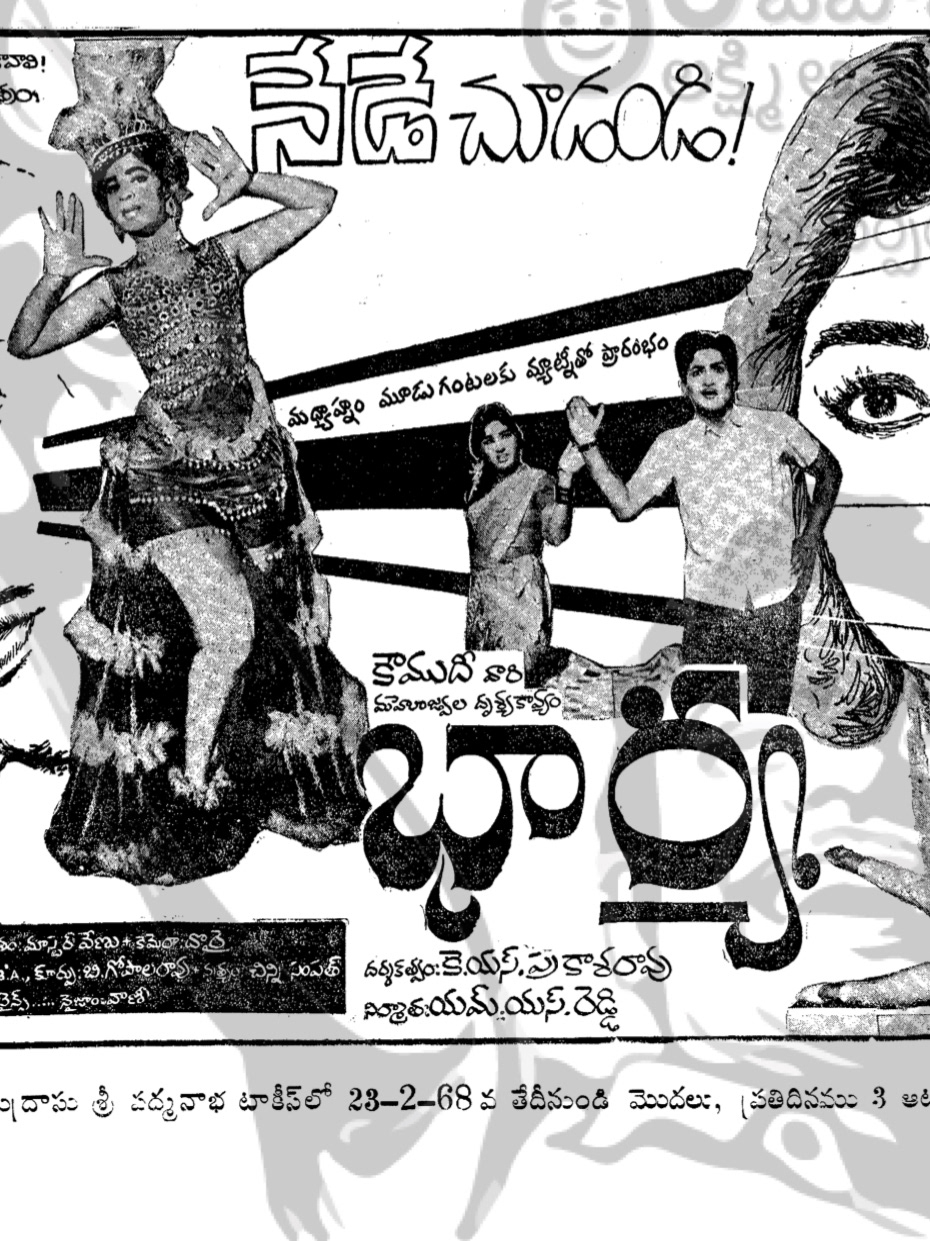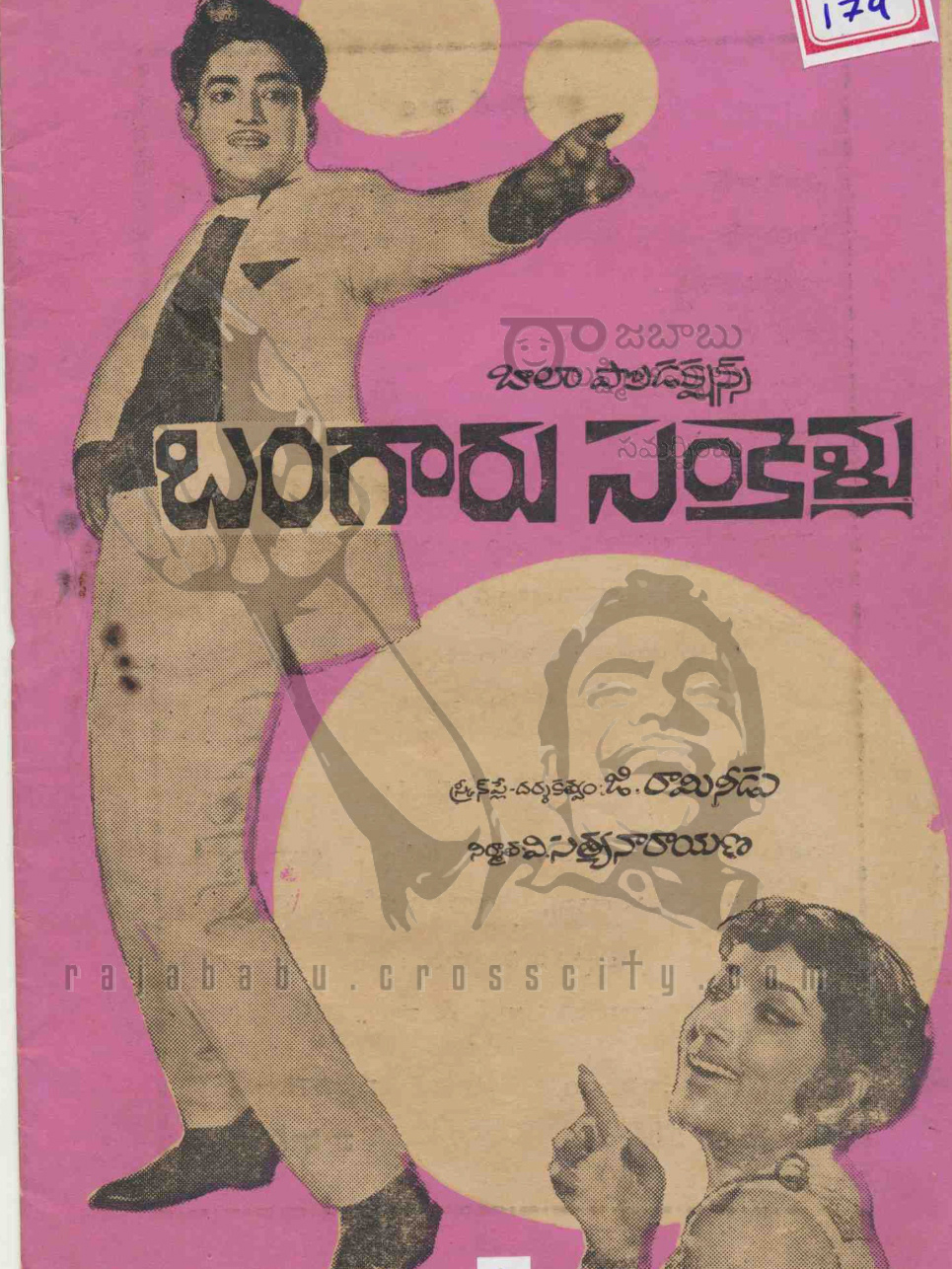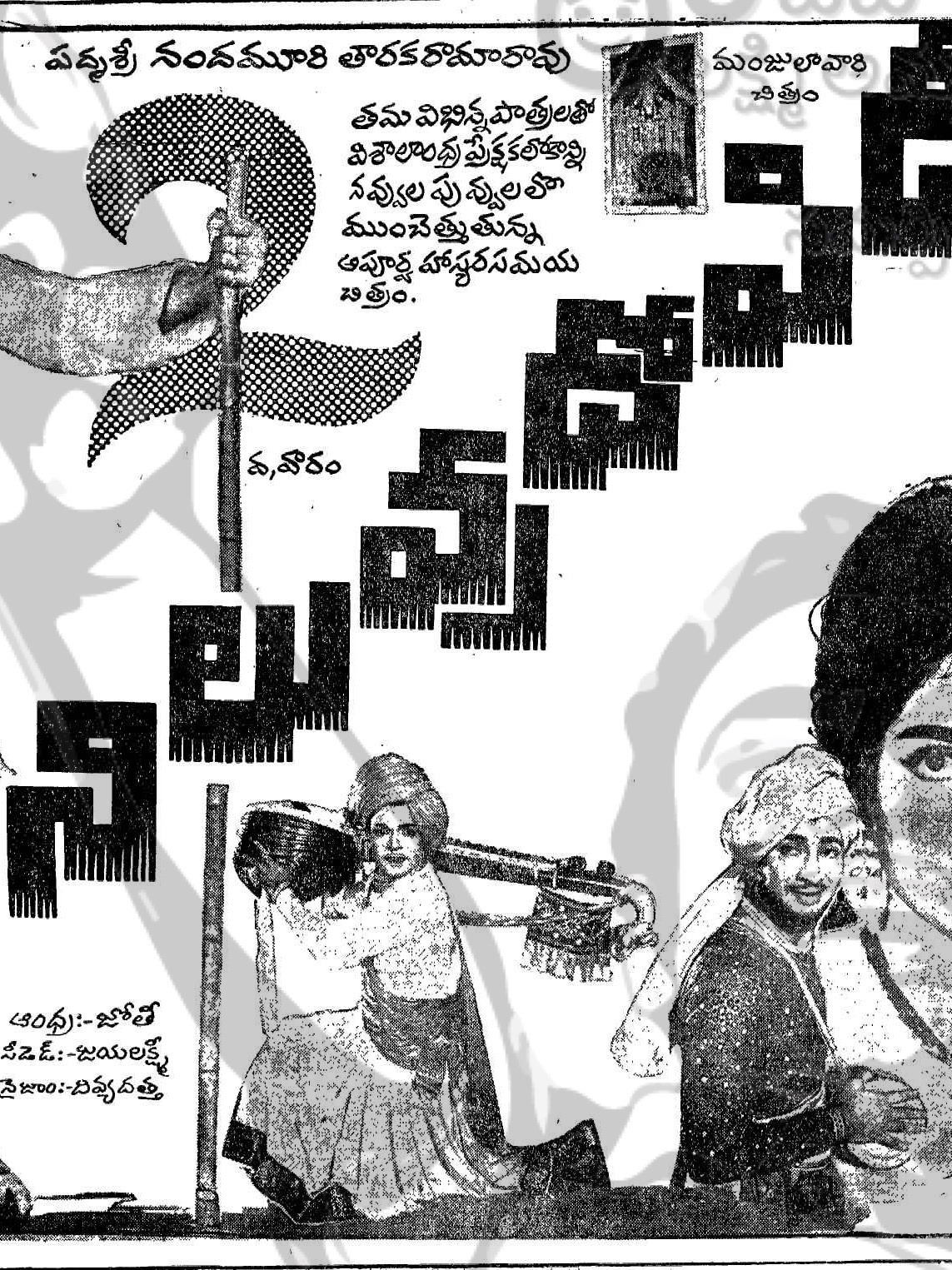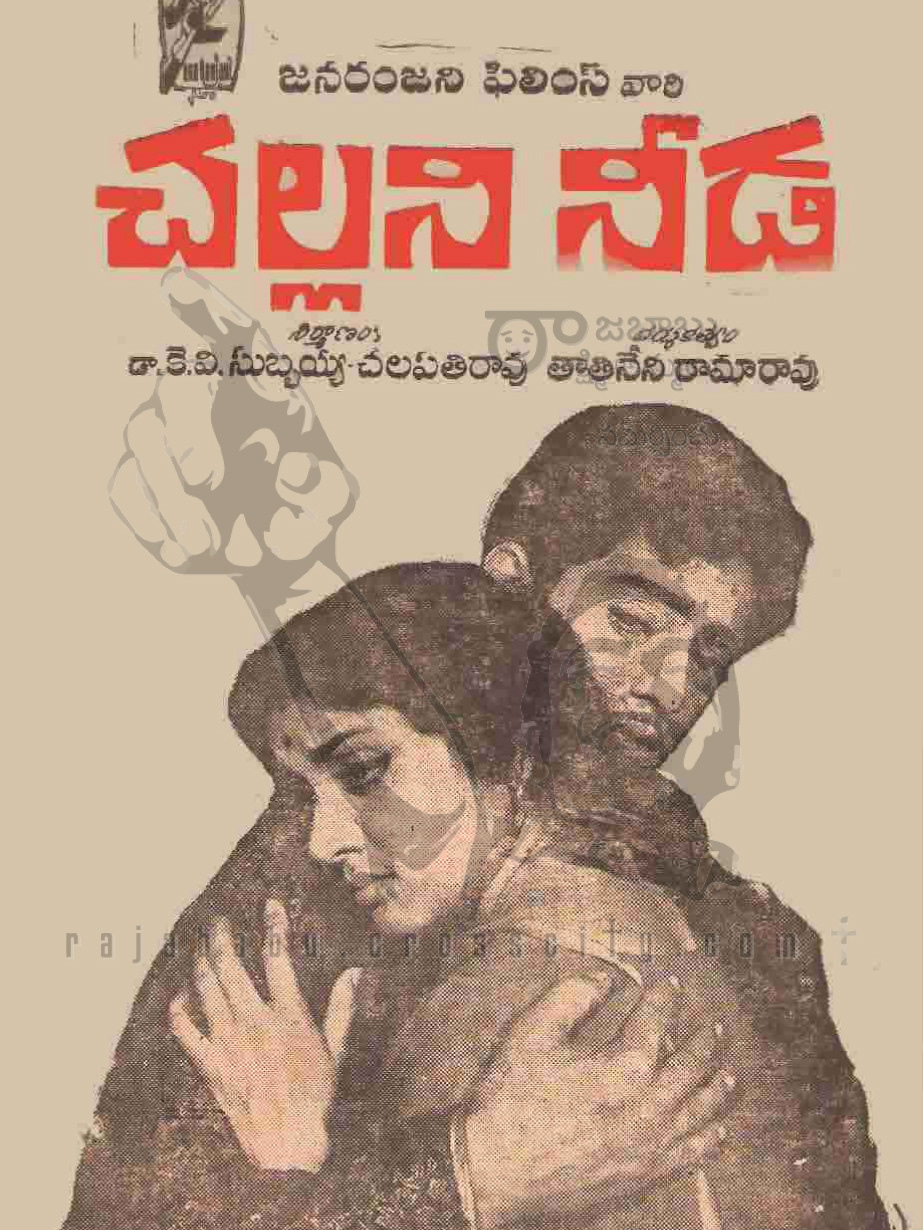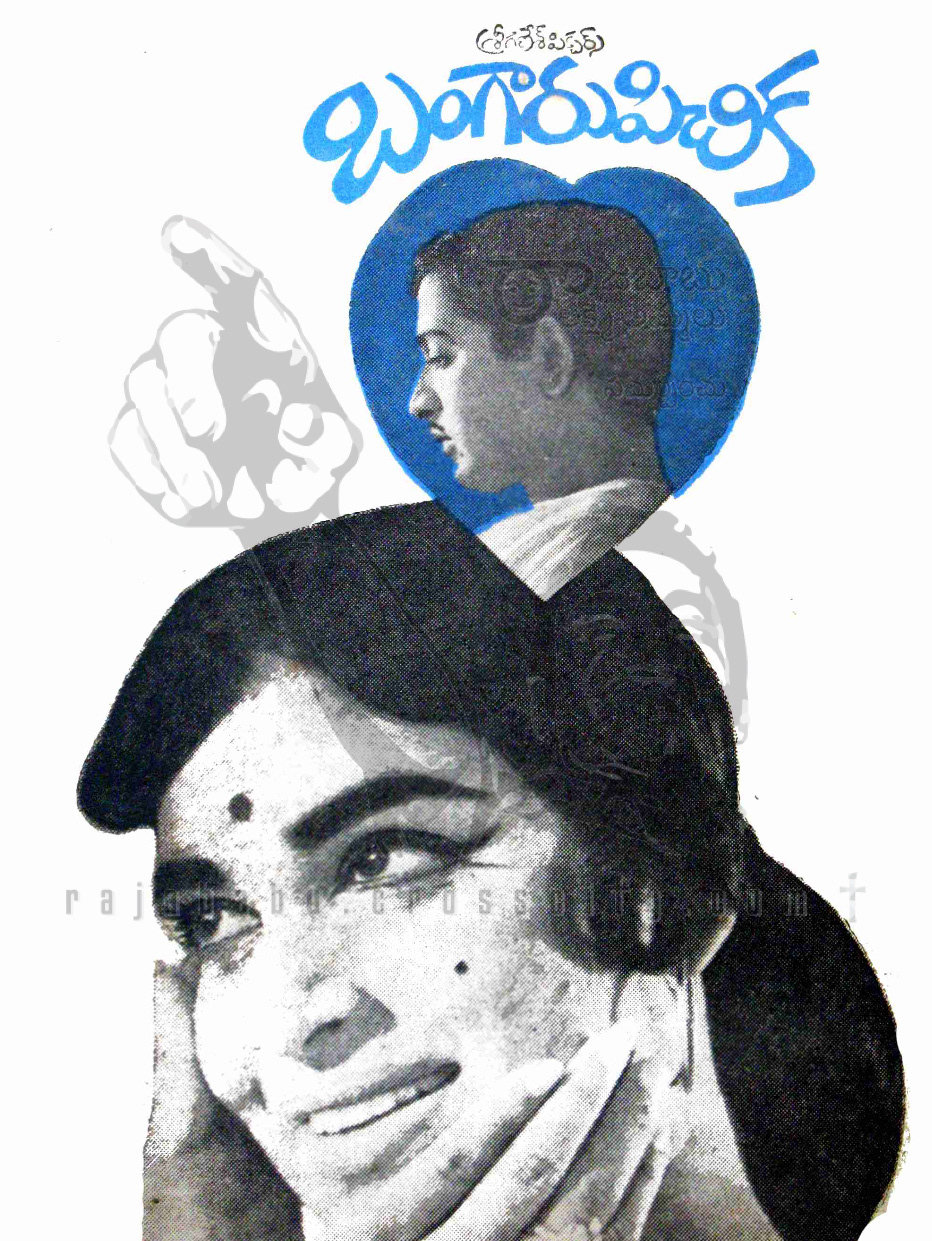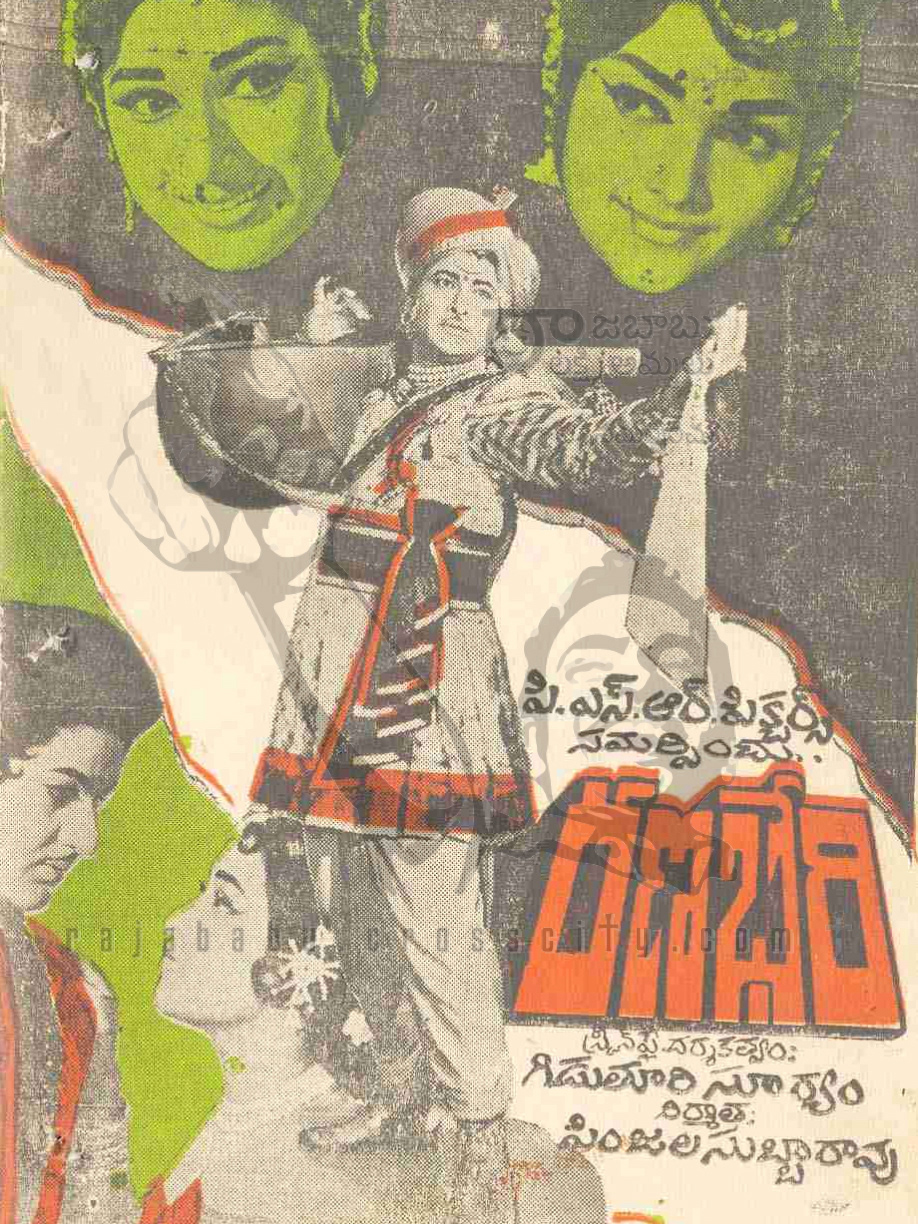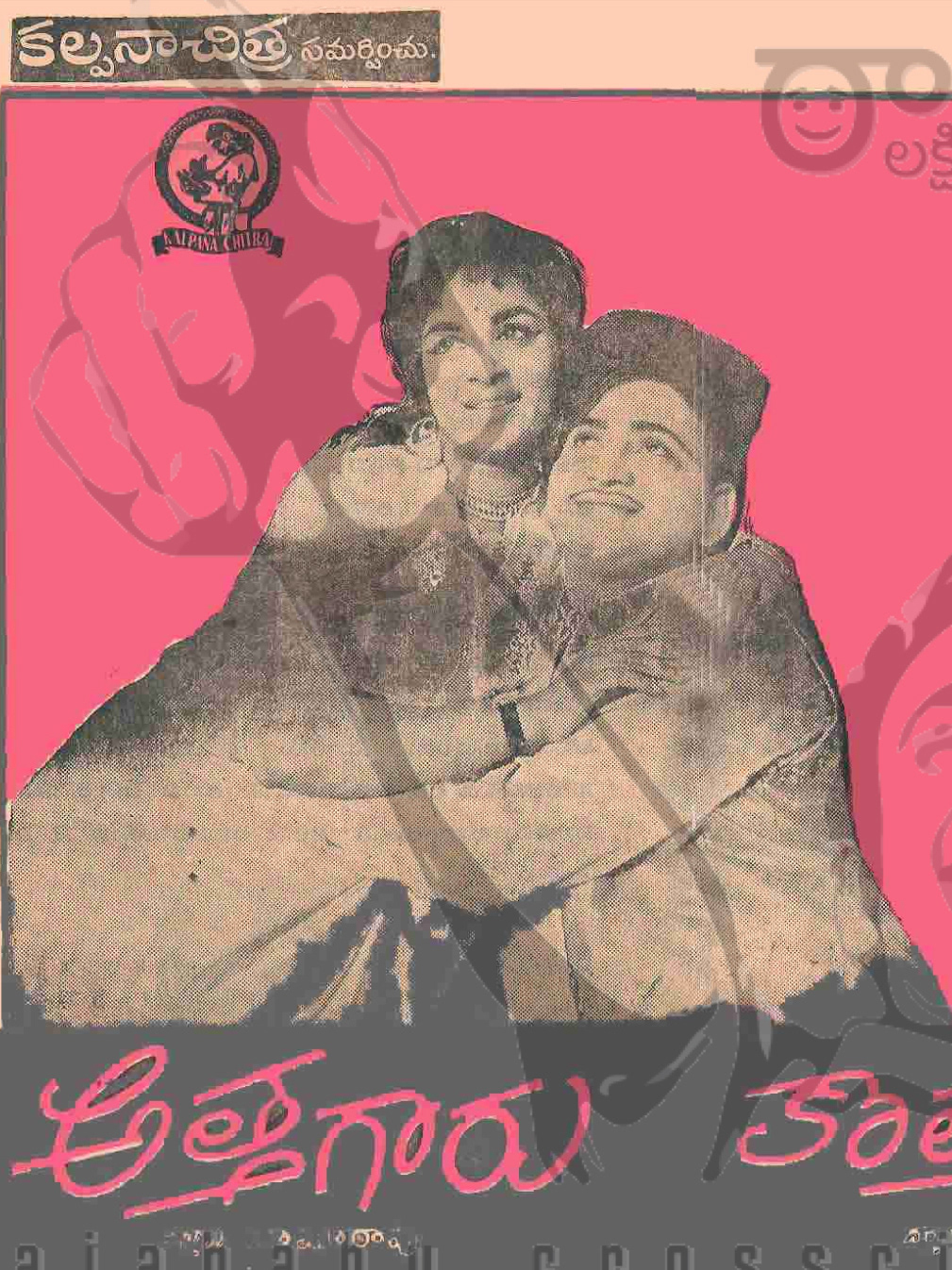Chuttarikaalu
Peketi Sivaram
Country: India; Year: 1968; Language: Telugu
Studio: Sridevi Combines
Producer: Thota Subbarao, Nallajarla Venkata Satyanarayana; Cinematographer: R. Chittibabu; Editor: Bandi Gopal Rao; Composer: Ghantasala Venkateswara Rao; Lyricist: Dasaradhi, C. Narayana Reddy, Kosaraju Raghavaiah Choudhury, Sri Sri
Cast: Kongara Jagaiah, Jayanthi, Gummadi Venkateswara Rao, Sobanbabu, Relangi Venkataramaiah, Allu Ramalingaiah, Balakrishna, Ramachandra Rao, Krishnaiah, K.V. Chalam, Master Adinarayana, Hemalatha, Ramaprabha, Vijayasri, Rajeswari, Lakshmi, Baby Prabha, Kaikala Satyanarayana, Kantharao, T. Krishna Kumari, Rajababu
Topic: Original Language, Released
Release Date: June 22, 1968
IMDb ID: 1429332
Guest Appearance: Kaikala Satyanarayana, Kantharao, T. Krishna Kumari, Rajababu
Presented By: Nallajarla Rangarao; Assistant Director: A. Kodandarami Reddy, K. Balasubbi Raju; Story: T.R. Subbarao; Screenplay: Peketi Sivaram; Dialogue: Palagummi Padmaraju
Singer: Ghantasala Venkateswara Rao, P.B. Srinivas, P. Susheela, L.R. Eswari, Jikki, J.V. Raghavulu
Art Director: S. Vaali; Dance Director: B. Jayaram
Ghantasala Venkateswara Rao (Composer, Singer)
(1923-74) Telugu and Tamil composer and also singer. Legendary name in popular Telugu music who sang over 10,000 songs in his career, and composed, apparently, for over 125 films. Born in Chautapelle, Gudivada Taluk, AP, the son of a musician. Orphaned as a child. Child actor, in near slavery conditions, in plays like Chintamani and Sant Sakkubai. Apprenticed to the school of Susarlu Krishna Brahma Sastry; graduated from the music school at Vijayanagar while earning a living as an itinerant singer and beggar. Received the title of Vidwan in 1941. Was arrested and imprisoned in the Alipore jail for singing patriotic songs during Gandhi’s Satyagraha agitations (1942). Went to Madras (1945); cast in small film roles, e.g. Balaramaiah’s Seeta Rama Jananam (1942) and Thyagayya (1946), while occasionally recording for AIR. Broke through in Swargaseema (1945), singing duets with Bhanumati to Nagaiah’s score. Turned composer for L.V. Prasad’s Mana Desam. Known mainly for love duets (recently released on cassette by HMV, titled Divyaprema). Combined native idioms with classical Carnatic styles, e.g. in compositions for Chiranjeevulu and Rahasyam, set to the lyrics of Malladi Ramakrishna Sastry. His work in these two films was, to V.A.K. Ranga Rao, his best film work although both films flopped. Also produced Paropakaram (1953). Made a rare screen appearance in the hit Shri Venkateswara Mahatyam (1960).
Kosaraju Raghavaiah Choudhury (Lyricist)
(1905-87) Prolific Telugu lyricist born in Appikatla, Guntur Dist., AP. Influenced by Kondamudi Narasimham Panthulu, in whose play based on the Ramayana he acted when still in his teens. Worked as a journalist in the Raitu Patrika where he met the composer Samudrala Raghavacharya and the director Ramabrahmam. Published his first poetry anthology, Kadagandlu. Turned to film lyrics with Raitu Bidda (1939), including the song Nidramelkonara tammuda. Returned to films with humorous lyrics for K.V. Reddy’s Pedda Manushulu (1954), followed by one of his most famous songs, Jebulu bomma je jela bomma (in B.A. Subba Rao’s Raju Peda, 1954). Known for his earthy poetry, often referring to popular morality tales. Wrote lyrics for c.350 films.
